How to Prepare a Post-Trump Renaissance in Diplomacy
 It has been just over a year since American diplomacy entered a dark age, but the time for mourning has passed. The Trump White House’s disdain for diplomacy persists, and that probably won’t change. The new national security adviser, John Bolton, is no fan of diplomacy or diplomats.
It has been just over a year since American diplomacy entered a dark age, but the time for mourning has passed. The Trump White House’s disdain for diplomacy persists, and that probably won’t change. The new national security adviser, John Bolton, is no fan of diplomacy or diplomats.
The best that the Foreign Service and those outside government in academia and at think tanks can do now is prepare wisely for the day after Mr. Trump leaves office to make sure that a renaissance follows the dark age.
Many career diplomats in Washington have little to do these days. Some are between assignments because of the administration’s failure to fill hundreds of State Department positions. Others have jobs but find themselves increasingly ignored or sidelined. The silver lining is, they now have time to turn inward and find solutions to their problems — both those created by Mr. Trump’s neglect and those that have long plagued the department.

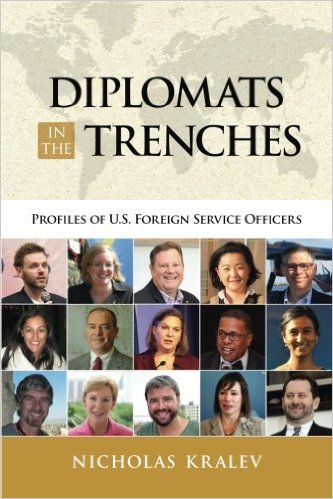 Most Americans, like ordinary people everywhere, don’t relate to diplomacy — to the extent they think about it at all, they view it as something that happens in a stratosphere of officialdom, far out of their reach. They also believe that it has little to do with their lives.
Most Americans, like ordinary people everywhere, don’t relate to diplomacy — to the extent they think about it at all, they view it as something that happens in a stratosphere of officialdom, far out of their reach. They also believe that it has little to do with their lives.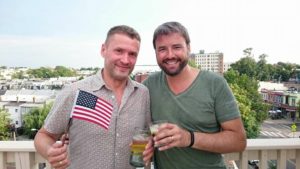 Ken Kero was working in the political section of the U.S. Embassy in Berlin in 2006, when he met a German film editor and photographer named David Mentz. Two years later, they got married and changed both their last names to Kero-Mentz.
Ken Kero was working in the political section of the U.S. Embassy in Berlin in 2006, when he met a German film editor and photographer named David Mentz. Two years later, they got married and changed both their last names to Kero-Mentz.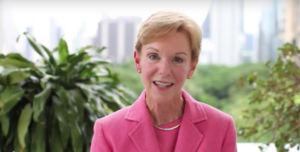 Kristie Kenney often seems upbeat and chipper, but on the day I first met her in 2012 in Bangkok, where she was the U.S. ambassador, she was especially excited, in anticipation of a rare event the next day.
Kristie Kenney often seems upbeat and chipper, but on the day I first met her in 2012 in Bangkok, where she was the U.S. ambassador, she was especially excited, in anticipation of a rare event the next day. Sumreen Mirza’s path to the Foreign Service began in her parents’ homeland, Pakistan. She was an intern at an NGO in the southern port city of Karachi in 2002, when the U.S. Consulate there was attacked in a massive explosion that killed 15 Pakistanis.
Sumreen Mirza’s path to the Foreign Service began in her parents’ homeland, Pakistan. She was an intern at an NGO in the southern port city of Karachi in 2002, when the U.S. Consulate there was attacked in a massive explosion that killed 15 Pakistanis.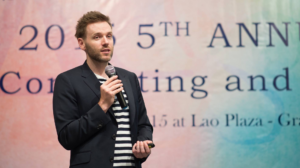 Matthew Ference belongs to a select group of American diplomats who passed the Foreign Service entrance exams on their first try. He attributes it to being relaxed and trying not to care too much.
Matthew Ference belongs to a select group of American diplomats who passed the Foreign Service entrance exams on their first try. He attributes it to being relaxed and trying not to care too much.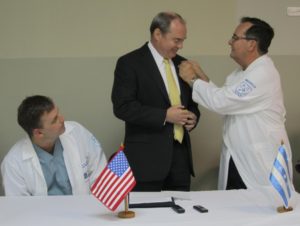 Working saved David Lindwall’s life — literally. He was deputy chief of mission at the U.S. Embassy in Haiti in January 2010, when a catastrophic earthquake flattened his house. He felt very lucky to be in the quake-resistant embassy building when the earth shook.
Working saved David Lindwall’s life — literally. He was deputy chief of mission at the U.S. Embassy in Haiti in January 2010, when a catastrophic earthquake flattened his house. He felt very lucky to be in the quake-resistant embassy building when the earth shook.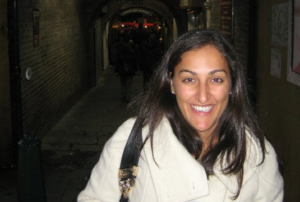 Anjalina Sen is a diplomat of a peculiar kind. She finds diplomatic receptions “a bit more onerous than sleeping in a bamboo hut for a week.” It makes sense, then, that she has spent her nine years in the Foreign Service so far working mostly on refugee issues.
Anjalina Sen is a diplomat of a peculiar kind. She finds diplomatic receptions “a bit more onerous than sleeping in a bamboo hut for a week.” It makes sense, then, that she has spent her nine years in the Foreign Service so far working mostly on refugee issues.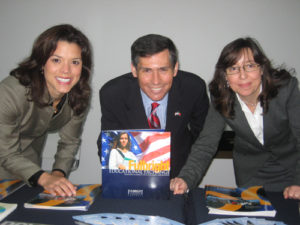 Gavin Sundwall stood beside the grave, a Bible in hand, and read John 11:25-26: “I am the resurrection and the life…” Two taxi drivers, who had become the deceased woman’s chauffeurs during the last years of her life, shared memories of her and shed tears. They sprinkled the woman’s ashes over the graves of her two husbands, which were just a few feet apart.
Gavin Sundwall stood beside the grave, a Bible in hand, and read John 11:25-26: “I am the resurrection and the life…” Two taxi drivers, who had become the deceased woman’s chauffeurs during the last years of her life, shared memories of her and shed tears. They sprinkled the woman’s ashes over the graves of her two husbands, which were just a few feet apart.